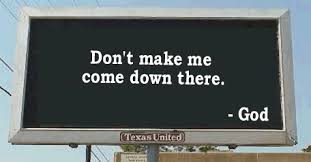I have a friend who asks that if the Bible is God’s word, God’s communication to humanity, then why is it so hard to understand?
The simple answer is that it was written thousands of years ago, to people who don’t exists, giving words to thoughts that rarely anyone thinks anymore. It was written in genres we don’t read anymore, except in the Bible. It gives a style of history scholars don’t trust. A style of storytelling that doesn’t communicate. It is communicating to people who lived in cultures we just don’t understand most of the time. Times have changed, people have changed. The Bible is part of that change, and many of the changes have been for the good. I am glad, for one, that we don’t stone or crucify people anymore. I am glad that gentleness can be an acceptable way of life for some. I am glad that we no longer live in a paternalistic culture (even if the dregs of it still remain)—and the Bible has been significant in helping to make these changes, even as it had been significant in keeping the older cultures alive. But there have been so many changes in 2000 years, it is difficult to understand the original contexts and cultures that wrote the Bible in the first place.
But his question is less practical and more theological. If the Bible is the primary mode of communicating to humanity, then why hide that communication in genres and language we cannot understand? Why not give us a sign, like neon? Why not send out an update every once in a while?
Of course many believe that God did exactly that. Some believe that God continues to write books and give messages: through His Spirit, through creation, through His church, through visions, through the imaginations of men. I cannot deny this, nor can anyone. If God is alive, and personal, and loves us, then He must communicate to us still. I think there is clear indication that He does. Not only through these means, but also through life experiences, through human education, through personal insights… heck, even through blogs.
But the massive number of texts and ideas are like the internet—the truth is out there, but how are we to know what is the true truth? How can we pick and choose? If it is science, we can experiment, we can go through a rigorous process of understanding. But we cannot use science for an individual personality. What evidence is there that my friend Bill exists? Or that my wife exists? There are documents, or you can interview them personally, but science can’t do much for you in that regard, other than give you a picture of their DNA.

The Bible, through Jesus’ understanding, doesn’t give us a whole picture of God. Nor does it tell us who to marry or whether we should quit our job, specifically. But the Bible, through Jesus, gives us the basic principles. It doesn’t tell us whether this latest prophecy is from God, but if the prophecy is opposed to Jesus’ principles, then we can say clearly that it isn’t from God. And knowing what is not from God, gives us a much better shot at trying to determine what IS from God. Jesus’ Bible is a foundation on which we can build all other communication that we receive from God.
But how do we use the Bible? How can we get past the shell of thousands of pages and ancient society to get across a real truth? What about that the Bible says one thing at one time and another at another time? How can we obtain any meaning from the Bible?
Well, it isn’t easy. It takes work. We can do this task ourselves, or we can let others do it for us. But even if others tell us what the Bible says, that doesn’t mean that we can’t ourselves go back and see if it is true. This is why I will try my best to give verses and links so you can check what I say for yourselves. I’m just a guy who’s done his own studies and wants to share his thoughts. It’s up to you to decide what is true.
But this is what I’ve found to be the best ways to understand the Bible:
1. Discover themes that develop through the Bible
 |
| A graph of connections between Bible books |
This is easier than it sounds. It requires one first step—read the whole book. Not something you can do in one sitting, but it is a fair thing for every literate person to do. We should all have a reading of the Bible, even if we don’t believe in it, because the Bible is a foundation for much of our society and thought. Once you’ve read it through, you will see similar themes, or perhaps contrary ideas or the development of ideas. Spend a little bit of time thinking about these things, write them down. The Bible is all about themes and how they develop, ideas that begin as a seed and grow. They may be communicated in different ways, but the same ideas are there, and that is where the power of the Bible really is.
2. Apply Jesus’ principles and actions to the whole of the Bible
If you are only reading through the Bible once, I’m going to give you a strange idea: begin at the middle. The Bible is not a novel that must be read from beginning to end. Rather it is a collection of stories and books that have a purpose in its order, but can be read out of order. My suggestion is this: begin with the four gospels, Matthew, Mark, Luke and John. Then go to the beginning and start again. If, as I hypothesize, the entire Bible is about Jesus, then it will only make sense if Jesus is kept in mind from the very beginning. You will see that Jesus’ ideas and actions are right there in the first chapter of the Bible, and it only grows from there. You will see actions and ideas that Jesus seems to oppose, and that he approves. But the Bible will make more sense if you keep him in mind as you read it.
3. Create cultural bridges from Bible themes to our lives
The Bible will use similar ideas that we use, but communicate them differently. For instance, the Bible speaks about widows and orphans as objects of pity. But what is the reason for this pity? Because in the firmly patriarchal society, those who were not citizens nor without connection to citizens had no legal standing, and so could not worship, go to court, or have justice in any way. They were vulnerable and dependent on mercy. So we apply such ideas to today: who are the ones who have no legal standing today, who cannot get justice, have a fair standing in court or be welcome at church? Perhaps the extremely poor, the illegal immigrant, the “sinner”? We take the ancient ideas and apply them today and thus give the Bible a place in our lives.
4. Interpret the Bible as a Third World Refugee
Almost every part of the Bible was written to people who were poor, were vulnerable and who often were not in their homeland. Those desperate to follow God's will aren't the secure, the settled, or the satisfied. The Bible was written to those desperate to have their needs met, and who daily face danger and loss. When we read it, we need to understand it from the perspective of those in need, and apply it in our lives that way.
The purpose of the Bible isn’t to give us a bunch of stories. Nor is it to give us theology. It is there to change our lives, to help us consider a better way to live, and a better way to connect with God.

